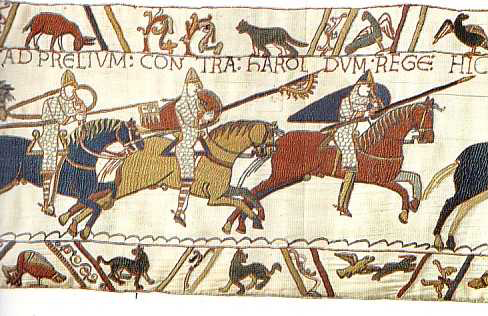THE HISTORY OF THE ENGLISH LANGUAGE: AN INTRODUCTION

Why is there such a striking difference between English spelling and pronunciation? How did our seemingly simple grammar rules develop? What are the origins of regional dialect, literary language and everyday speech? Through a wide range of original texts we will examine the changes the language has undergone chronologically from Germanic and Old English to Modern English, all the while looking at relevant social and political developments. Specific grammar topics such as the past tense origin of ‘can’ and ‘must’ and the origin of present tense –s, as well as vocabulary issues, such as the unique nature of the core Germanic word stock and the Irish origin of many slang words will also be covered
Course Outline:
- the Indo-European background to Germanic and Old English
- evidence for Celtic influence on Old English
- the pronunciation and grammar of the West Saxon dialect of Old English, and examination of original texts from the early period to the 10th century standard literary language of Aelfric’s Cosmology the impact of Old Norse on the English language
- borrowings from Latin and Old Norse into Old English and beyond
- the transition from Old to Middle English with the breakdown of the inflexional system. We will see this in action by looking at the entries for different years in the Peterborough Chronicle
- Middle English pronunciation, spelling and grammar
- the reascendancy of English as a literary and official language and the rise of standard English as we know it today
- the influence of French on Middle English vocabulary
- a survey of the Middle English dialects and different registers
- the Great Vowel Shift and the transition to Early Modern English
- the influence of the introduction of printing on English
- grammatical developments in Early Modern English
- 16th and 17th century attitudes to spelling and grammar
- the influx of Latin and Greek borrowings in the Early Modern era
- the role of the lexicographers, grammarians and elocutionists in fixing the standard language in the 18th century
- the development of Received Pronunciation in 19th century Britain
- the importation of slang terms from Irish
- the development of English as a world language
- specific topics such as the rise of periphrastic ‘do’, third person singular –s, the switch from ‘thou’ to ‘you’, the origin of the progressive tenses, possessive –s, the evolution of the preterite-present or modal verbs such as ‘can’ and ‘must’
Learning Outcomes:
On completion of the course, learners will be able to
- appreciate the radical transformation English has undergone since its beginnings
- make sense of selected Old and Middle English texts
- discern the sources of many words in the common lexicon
- understand the evolution of often apparently idiosyncratic features of grammar
- understand how many of the non-phonetic spelling rules of English came about
- appreciate how the usage of English was quite variable until it became fixed in the 18th century, and the modern pressure to let go of this prescriptive model
THIS COURSE IS AVAILABLE AS AN ONLINE SELF-STUDY COURSE.
$30 USD
THIS COURSE IS REGULARLY TAUGHT ONLINE OR IN AUCKLAND, NEW ZEALAND.
Ten two hour classes. Please enquire regarding price for online classes or in-person courses in Auckland.